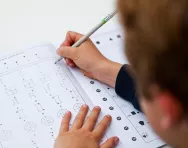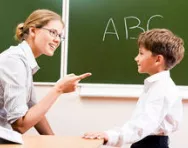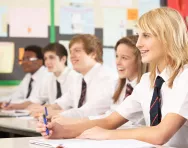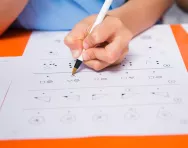Important update from TheSchoolRun
For the past 13 years, TheSchoolRun has been run by a small team of mums working from home, dedicated to providing quality educational resources to primary school parents. Unfortunately, rising supplier costs and falling revenue have made it impossible for us to continue operating, and we’ve had to make the difficult decision to close. The good news: We’ve arranged for another educational provider to take over many of our resources. These will be hosted on a new portal, where the content will be updated and expanded to support your child’s learning.
What this means for subscribers:
- Your subscription is still active, and for now, you can keep using the website as normal — just log in with your usual details to access all our articles and resources*.
- In a few months, all resources will move to the new portal. You’ll continue to have access there until your subscription ends. We’ll send you full details nearer the time.
- As a thank you for your support, we’ll also be sending you 16 primary school eBooks (worth £108.84) to download and keep.
A few changes to be aware of:
- The Learning Journey weekly email has ended, but your child’s plan will still be updated on your dashboard each Monday. Just log in to see the recommended worksheets.
- The 11+ weekly emails have now ended. We sent you all the remaining emails in the series at the end of March — please check your inbox (and spam folder) if you haven’t seen them. You can also follow the full programme here: 11+ Learning Journey.
If you have any questions, please contact us at [email protected]. Thank you for being part of our journey it’s been a privilege to support your family’s learning.
*If you need to reset your password, it will still work as usual. Please check your spam folder if the reset email doesn’t appear in your inbox.
What is an independent school?

Many families assume that a private education is out of reach for their child. But with over 1200 Independent Schools Council (ISC) schools throughout the UK and beyond, providing for more than half a million pupils from a variety of backgrounds, private schools are more diverse than you might think. So how does the independent education sector work?
What is an independent school?
Independent schools, private schools and public schools are essentially the same thing. They are all fee-paying schools that operate entirely independently of Local Authority or government control.
The term ‘public school’ is typically used to refer to the most prestigious boys’ independent schools, including Eton, Harrow and Winchester. Other independent schools vary from small local prep schools to high schools that are a central part of a community.
‘Independent schools are free to set their own curriculum, school hours and term dates, and to choose which exam qualifications students take,’ explains Tracy Cook, spokesperson for the Independent Schools Council. ‘Because they’re not constrained by government, they have the freedom to operate in what they consider to be their pupils’ best interests.’


Is Your Child Ready To Be Stretched?
- Download Challenge Packs for your child
- Maths & English packs for each school year
- Encourage your child to work at a greater depth
There are many different types of independent school, including schools that cater for children with a specific talent, such as music or dance, or with special educational needs. They also vary in size. Schools may be single sex or co-educational, and accept day students, boarders or both.
How are they organised?
Unlike in the state sector, where children are educated in Key Stages, independent schools tend to follow this structure:
- Pre-preparatory (pre-prep) schools cater for children aged four to seven, although there are fewer standalone pre-preps than there used to be; most are part of a prep school.
- Preparatory (prep) schools admit children at the age of eight, and prepare them for senior school. Some now call themselves junior schools.
- Senior schools admit children at age 11 or 13 (in the case of boys’ public schools) and generally continue through to Year 13.
- All-through schools take children from the start of their education through to GCSEs or A levels.
‘One feature of the independent sector is that there tends to be quite a lot of movement,’ says Tracy. ‘For example, some parents prioritise an independent primary education and then hope their child will move to a state grammar school at 11, while others might go to a state primary school and transfer to an independent senior school, or join an independent school in the sixth form.’
Why choose an independent school?
For most families, the main reason for choosing an independent school is the academic standards. Independent schools are consistently the best performing in the UK, and at A level, 51 per cent of independent school pupils gain at least one A* or A grade, compared to 26 per cent nationally. ‘Teaching staff in independent schools usually have at least a degree, and often a doctorate, in their subject – so, for example, you won’t get a physics specialist teaching biology,’ Tracy explains. ‘They know their subject inside out and are passionate about it.’
Other factors that make independent schools appeal include:
- Smaller class sizes
- Outstanding facilities
- A greater element of parental choice, unlike in the state system, where much depends on catchment areas
- Increased chances of getting a top university place
Independent schools are renowned for their extracurricular activities, including a wide range of sports, music, drama, debating and dance. ‘There is also a lot of emphasis on developing skills like leadership, compassion and resilience. The focus is on a rounded education,’ adds Tracy.
How do they select their students?
Independent schools set their own admission criteria, and generally choose the best-performing students, although some are easier to get into than others.
Usually, at pre-prep level, children are assessed for their overall development, including social interaction, play and speech.
To gain a place at prep, children typically take tests in English and maths, and sometimes some form of IQ test; these are often described as 7+ tests.
At senior school level, pupils normally take an entrance exam at the age of 11, which may be externally or internally set, to determine whether they are of the right academic standard. The established boys’ public schools generally admit pupils on the basis of a Common Entrance Exam at 13.
‘It’s important to note that independent school selection is a two-way process,’ says Tracy. ‘It’s essential for parents to feel happy with their choice of school, through looking at the prospectus, visiting on open days and when the school is in session, and meeting the head teacher, who sets the values and ethos. It’s also worth getting in touch with the school if you feel your child doesn’t fit their typical mould; they are usually happy to discuss how they could help.’
Are they all fee-paying?
Yes – the average annual fee for a day pupil is £13,200, projected to rise to £27,000 by 2028 if recent trends persist (Killik & Co Private Education Index). ‘However, most schools are keen to help with fees through bursaries and scholarships, and while applying for these is a rigorous process, over a third of ISC students receive some financial assistance,’ says Tracy.
How are independent schools regulated?
Independent schools are monitored by the Independent Schools Inspectorate, which reports to the Department for Education and is overseen by Ofsted. Each specific area – including teaching, curriculum, welfare and personal development – is rated either excellent, good, sound or unsatisfactory. Pupil achievement can also earn an exceptional rating.
What exams do children take?
At prep school level, schools generally set their own tests, rather than Key Stage 1 and 2 SATs. Children usually then take an entrance exam for entry to senior school. Senior schools can choose which qualifications they offer. In many schools these will be GCSEs and A levels, but an increasing number are offering international qualifications such as the International GCSE (IGCSE) and International Baccalaureate (IB), which has a primary-curriculum equivalent as well as the more common A Level-equivalent programme.
Where can I find out more?
The Independent Schools Council is a good starting place, with a Find a School feature. The Good Schools Guide also has lots of information about the independent sector, including advice on choosing a school.








